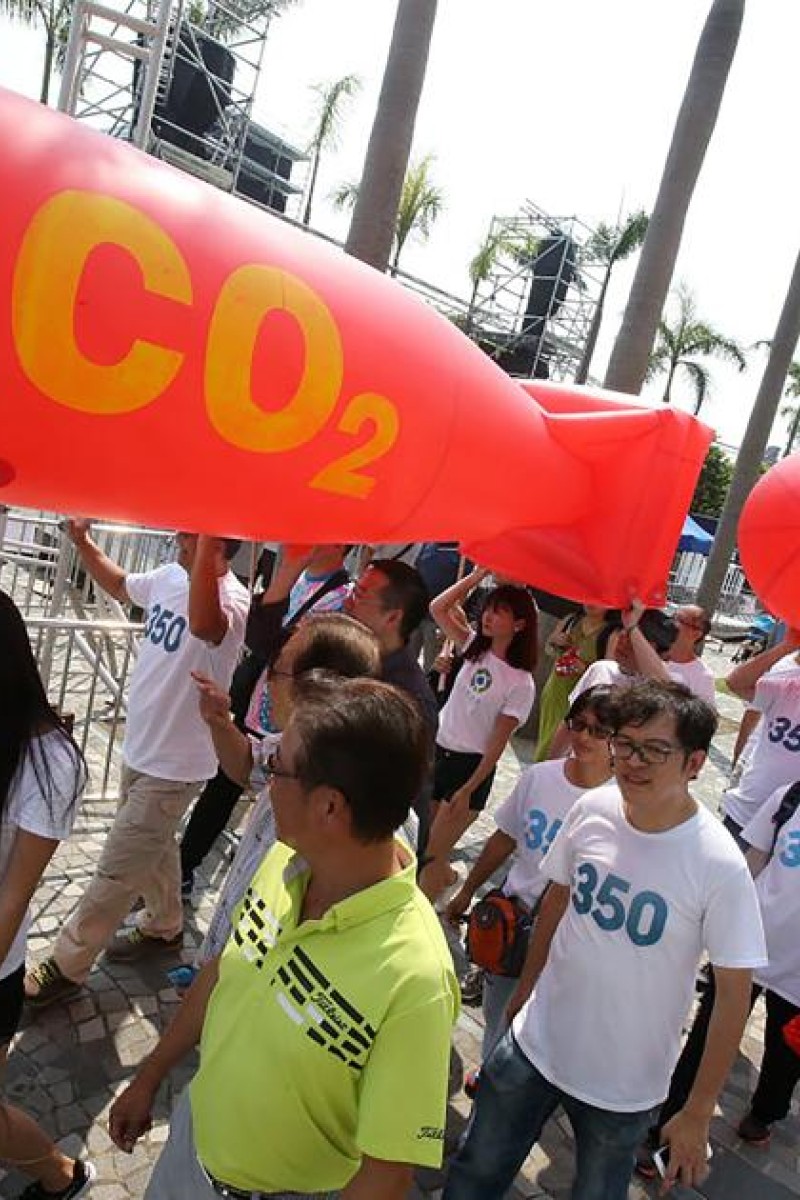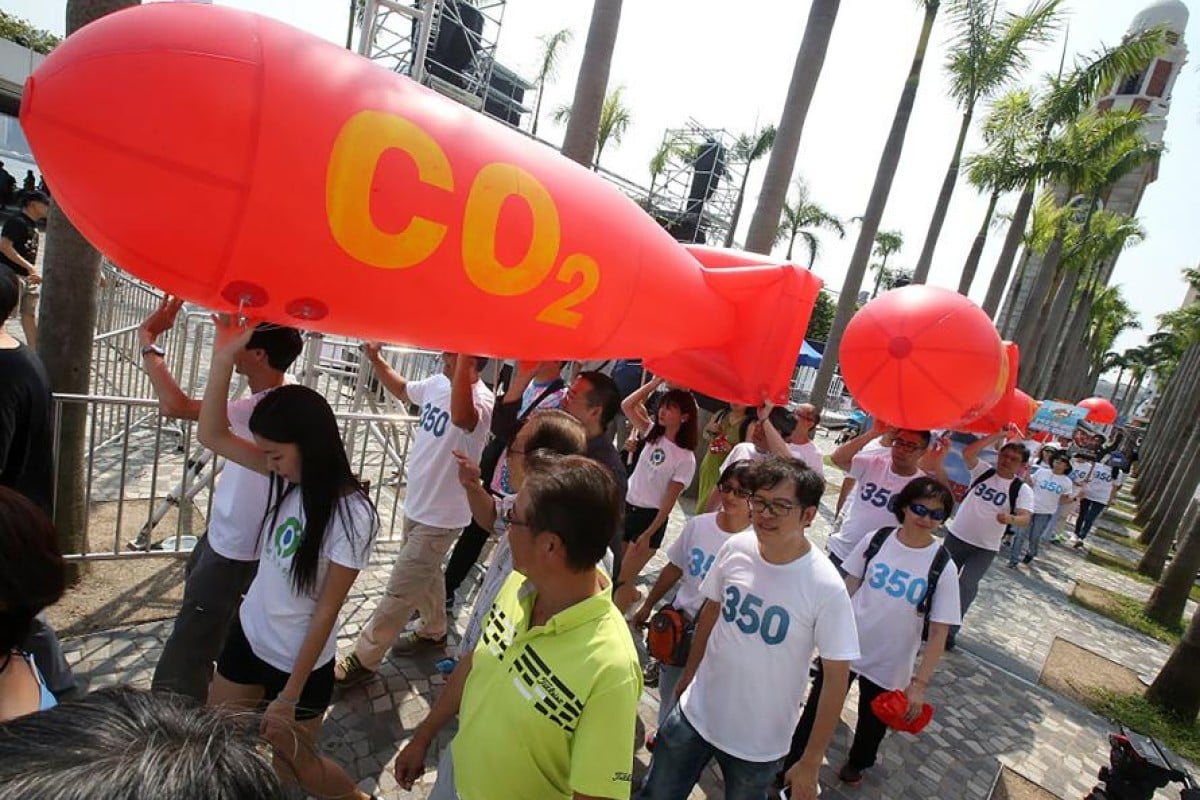
Hong Kong's emission reduction target was 3,300kg to 3,800kg per capita, exceeding the 2,000kg recommendation of global climate leadership group
 At this 2017 march, members of environmental group HK350 carried balloons in the shape of atomic bombs to highlight the looming carbon catastrophe.
At this 2017 march, members of environmental group HK350 carried balloons in the shape of atomic bombs to highlight the looming carbon catastrophe.Issue 2
According to the Paris Watch report, Hong Kong is falling short in achieving its fair share of emissions reductions to help realise the 2015 Paris climate agreement, which stressed the need to limit the rise in average global temperatures to 2 degrees Celsius, while “pursuing efforts” to hold it at 1.5 degrees.
The government’s emissions reduction target for 2030 was 3,300kg to 3,800kg per capita, but that would exceed the C40 Cities Climate Leadership Group’s recommended level of 2,000kg per capita for a city with this economic output. The C40 group, of which Hong Kong is a member, is a London-based network of megacities taking action to address climate change.
Say no to bottled water, drink from the tap, and help reduce Hong Kong's carbon footprint
“Everything we have heard here from scientists and politicians [at the international climate talks in Katowice, Poland, last December] just confirms the message that Hong Kong must plan to rapidly raise its ambition levels on greenhouse gas emission reductions,” said John Sayer, research director of environmental consultancy firm CarbonCare. Meanwhile, lawmaker Martin Liao Cheung-kong moved a motion in the Legislative Council urging the government to be more proactive in alleviating and coping with climate change and to lead the city into a green and low-carbon society and economy.
Secretary for the Environment Wong Kam-sing said the government would come up with a long-term decarbonisation strategy for up to 2050 by 2020.
A carbon tax will help Hong Kong breathe easy
Another advisory body, the Council for Sustainable Development, has been commissioned to conduct a public engagement later this year, and will have to identify a specific carbon reduction target, while taking into account scientific developments such as the Intergovernmental Panel on Climate Change’s latest special report.
Hong Kong’s total greenhouse gas emissions were reduced by about 5 per cent to 41,900 kilotons from 44,300 kilotons from 2013 to 2016, mainly attributable to a reduction in electricity generation by power plants and more use of natural gas in place of coal. The government expects emissions to peak before 2020 as more coal-fired plants are retired.
Question prompts:
- List three actions the Hong Kong government has taken to address the problem of global warming.
- The government expects greenhouse gas emissions to peak before 2020. What do you think the world’s climate will be like by then?
